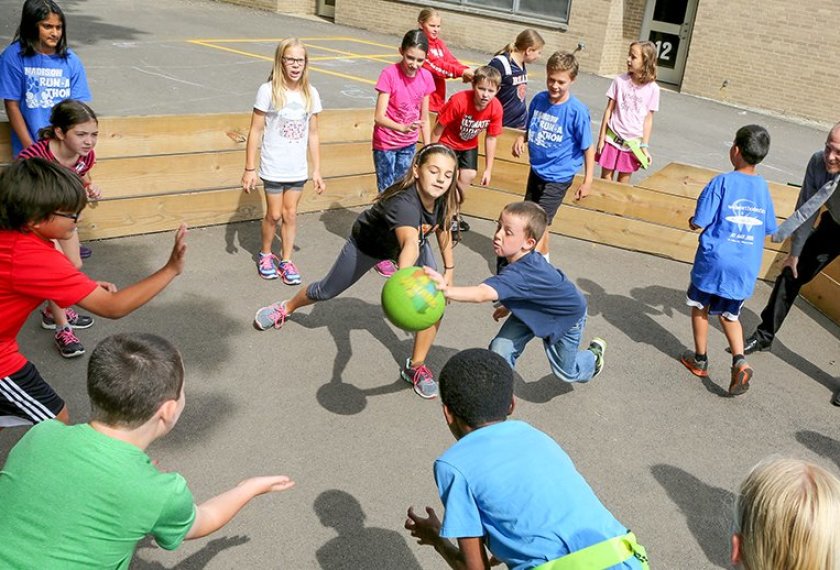During the month of January, Third Horizon Strategies will publish a four-part blog series sharing predictions for behavioral health in 2022. Today’s piece focuses on pediatric behavioral health. Check back weekly for additional insights regarding states’ roles in addressing behavioral health, ways payers will shift resources to better address health equity, and employer investments in behavioral health.
The COVID-19 pandemic and subsequent economic downturn have contributed to a complex array of stressors (trauma, uncertainty, social isolation, parental angst) that have impacted the mental health of children and adolescents. Last year, federal agencies and officials, private associations, and subject matter experts began calling attention to the severity of need.
In their June 2021 report to congress, the Medicaid and CHIP Payment and Access Commission recommended that agencies coordinate more to address the design and implementation of benefits and improve access to home and community-based behavioral health services for Medicaid/CHIP beneficiaries under age 18 with significant mental health needs. In the recent Health Affairs article, “The Kids are Not Alright”, our colleague Vikki Wachino et al writes, “Medicaid has a particularly important role to play, as insurer of nearly half of America’s children, whose low incomes make them particularly vulnerable to homelessness, food insecurity, and toxic stress…But Medicaid alone will not solve this crisis: Commercial insurers must recognize that promoting children’s health means meeting kids’ mental health needs. Stronger benefit packages that cover behavioral health services and interventions for children and families must be offered.”
In October, the American Academy of Pediatrics, the American Academy of Child and Adolescent Psychiatry, and Children’s Hospital Association declared a national emergency in child and adolescent mental health. Less than two months later, U.S. Surgeon General Dr. Vivek Murthy issued a new Surgeon General’s Advisory that calls for a swift and coordinated response to this crisis.
Want more daily health intelligence from Third Horizon Strategies? Sign up for Tea Leaves – a free daily newsletter capturing a rundown of the most important health industry activity!
As someone who has worked in community behavioral health for many years, and as a mother of an adolescent, I know our delivery systems are all too often ill equipped to identify and reach children in need. It can be challenging for parents, teachers, and others who interact regularly with kids to discern the difference between challenging behaviors and emotions that are a normal part of growing up vs. those that may be indicative of mental health concerns or substance use disorders. Parental stress can also negatively affect children’s mental health and have long-term health implications. Children who feel lonely, sad, or anxious may not have the skills to recognize this or may lack a safe and trusted adult with whom they can vocalize their concerns. Further, some behavioral health professionals do not have specialized training to effectively treat children and families.
Based on the developments of 2021, I believe there will be three major trends in 2022:
- In 2022, there will be increased emphasis on reaching kids with behavioral health concerns. There have already been significant federal dollars allocated for this purpose. For example, the American Rescue Plan dedicated millions of dollars for the Pediatric Mental Health Care Access program, youth suicide prevention efforts, and additional investment in Certified Community Behavioral Health Clinics (CCBHCs) which incentivize providers to coordinate care with schools and provide person and family centered treatment.
- More states will take action to expand coverage of behavioral health screening and services for all children. For example, California recently enacted the ACEs Equity Act, which will significantly expand coverage for Adverse Childhood Experiences (ACEs) screening. States will also increase investment in children’s behavioral health and look at opportunities to expend pandemic relief funds, state general funds, and the increased allocations they are receiving from the Substance Abuse and Mental Health Services Administration’s Mental Health and Substance Abuse Prevention and Treatment block grant dollars.
- There will be more support for reaching children where they are, namely in schools and through other community-based settings. For example, my son’s middle school in Denver has partnered with the Mental Health Center of Denver to offer groups at no cost to students addressing “Anxiety Management and Mindfulness” and “Healthy Relationships and Communication.” The PTA’s fundraising efforts for the year have been dedicated not to buying new chrome books or other standard school needs, but to supporting social/emotional learning and mental health supports. These grassroots efforts reflect how far we have come in mitigating stigma, yet also how severe pediatric behavioral health concerns have become.
Last year, Third Horizon Strategies provided strategic consulting services to several organizations seeking to expand pediatric behavioral health services. For example, I conducted an environmental scan on pediatric behavioral health integration in primary care settings and offered technical assistance to an organization expanding the Collaborative Care model to serve children and families. Please contact me for more information about children’s behavioral health, and how we can support your efforts!

